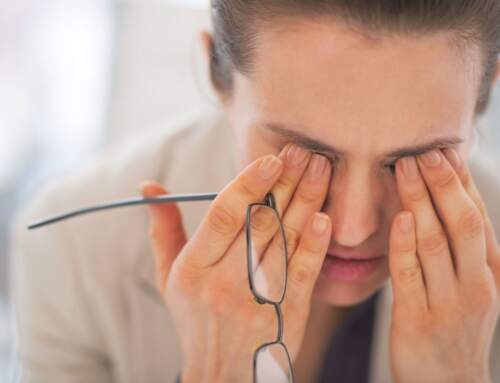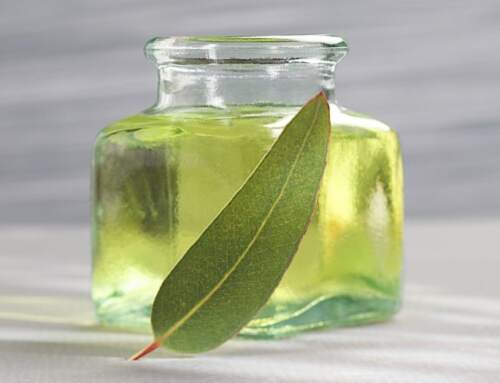Degenerative Disc Disease + 6 Natural Remedies
If you’ve been dealing with back pain, you may be living with degenerative disc disease. What is it, how does it happen and can you reverse degenerative disc disease?
This guide has everything you need to know about the condition, including ways to relieve the symptoms with natural remedies.
What Is Degenerative Disc Disease?
Degenerative disc disease is when the discs between the vertebrae of your spine cause pain. (1) This usually happens as we grow older, as our discs begin to show wear and tear.
Disc degeneration happens in everyone, as the discs take damage from the general use of them over the years. Some people may not feel any pain at all from this process, but others may start feeling pain in their spine. The discs in your spine are made of a soft inner core and a harder outer shell, and the shell taking damage is what causes the pain.
Can you reverse degenerative disc disease? The answer is most commonly no, once the disc is damaged, it’s there for life. (2) However, with the right treatment and care, you can significantly reduce the symptoms of it.
Signs and Symptoms of Degenerative Disc Disease
How can you tell if you have degenerative disc disease?
There are a few symptoms you need to look out for. Mostly, you’ll start to feel pain somewhere in your back, and where you feel the pain in your back will depend on which disc has suffered damage. For example, you could feel pain in your buttocks, upper thighs, lower back or further up even into your neck.
The pain may be sharp, or nagging. It’ll come and go, and feel better when you get up and move around. It’ll feel worse when you’re sitting. It’ll also feel worse when you bend and twist.
As well as pain, you may experience numbness and tingling in your arms and legs. Many people worry, thinking degenerative disc disease can cause you to become paralyzed. In rare cases, it can happen. However, most often, degenerative disc disease surgery can be carried out to prevent this, so you’ll probably never have to deal with paralysis becoming a problem.
Can you die from degenerative disc disease?
Although the diagnosis can sound frightening, you don’t need to panic. You certainly cannot die of a degenerative disorder such as this one. (3)
Degenerative Disc Disease Causes and Risk Factors
The most common of degenerative disc disease causes is aging. As you grow older, the protein and water makeup of your cartilage changes. That makes your spinal discs more fragile, subjecting them to more wear and tear. (4)
The more damage they take, the more likely it is that you’re going to start feeling pain in your back. The sooner you go to your doctor and get diagnosed, the better.
Inflammation is another cause that you need to be aware of. As the disc deteriorates, the inflammatory proteins can leak out into the spinal column itself. (5)
They cause swelling and muscle tension in the spinal structures, creating more pain in the area. In fact, inflammation can be seen as the cause of many different back and spinal issues.
Is degenerative disc disease hereditary?
There is some evidence to suggest that you can inherit a predisposition to developing a degenerative bone disease or disc disease. A study indicated that if you have a parent or grandparent with the disease, then you could be more likely to develop it yourself. (6) However, the scientists behind the study say that this may be down to environmental reasons, rather than genetics, and more research needs to be done.
Conventional Treatment
What is the treatment for degenerative disc disease? In most cases, any treatment undertaken is designed to relieve pain in the patient, and stop the discs from degenerating further and causing more problems later down the line.
In the first instance, patients are given over the counter pain relievers, such as ibuprofen, in order to combat the pain. Ibuprofen is often recommended as an anti-inflammatory agent. If you need stronger pain relievers, a doctor may prescribe them for you. (Meanwhile, please be aware of the side effects of NSAIDs (nonsteroidal anti-inflammatory drugs).) You may also be given medication for back spasms, if your degenerative disc disease is causing them.
Alongside pain relievers, you may be assigned to receive physical therapy. These will often be designed to strengthen the muscles in your back and neck, as degenerative disc disease in the neck can be quite common. With strengthened muscles, your spine will be better supported, and you’ll feel less pain overall.
Degenerative disc disease treatment can sometimes include steroid shots. These are most commonly administered into the epidural space in your back, or a nerve or muscle, depending on where the pain is. Your doctor would be able to tell you if this treatment is right for you.
Finally, if these methods aren’t working, then your doctor may recommend surgery. (7) This can be done to remove the damaged part of the disc, taking the pressure off your back and relieving pain. If the disc is particularly damaged, then they may even remove it entirely and insert an artificial one.
Can a degenerated disc heal on its own?
Unfortunately, no. (8) Once you’ve been diagnosed with degenerative disc disease, then you’ll be living with it for life. The good news is that there are options for treating the symptoms. Many people today live their normal lives with the disease, using a combination of treatments that help them manage the symptoms.
Alongside the conventional methods listed above, there are a number of natural remedies that can help with the symptoms of degenerative disc disease.
Here’s some that you can try for yourself, if you’re looking for natural ways to ways to cope with the disease.






